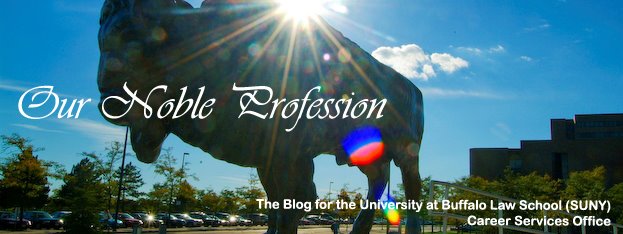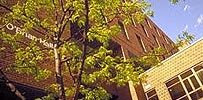"Professionalism is knowing how to do it, when to do it, and doing it." ~ Frank Tyger
 I know the idea of Facebook privacy is not a new concept and that reminding you to maintain a professional “e-presence” may be unnecessary for most. However, as a real life cautionary tale about what employers are doing, I wanted to pass on this bit of feedback that we received today from a recent UB graduate who is involved in the hiring process at her firm. As we continue to see the job market become even more competitive, it’s crucial to be mindful of the kinds of things that will affect your chances of getting offers. Here it is:
I know the idea of Facebook privacy is not a new concept and that reminding you to maintain a professional “e-presence” may be unnecessary for most. However, as a real life cautionary tale about what employers are doing, I wanted to pass on this bit of feedback that we received today from a recent UB graduate who is involved in the hiring process at her firm. As we continue to see the job market become even more competitive, it’s crucial to be mindful of the kinds of things that will affect your chances of getting offers. Here it is:“I am writing to display my concern in regards to law students having inappropriate content on Myspace and Facebook. I understand that people maintain these sites for communication purposes (I have a facebook and myspace page), however, I cannot stress enough how the interview committee sometimes asks us younger associates to check some applicants and interviewees' pages, and how inappropriate they are sometimes. I speak very highly of UB as an alumni and always encourage the interview committee to seek out UB candidates. However, I was extremely embarassed the other day to find that some candidates had extremely embarassing and inapproprate content on their pages (in which one the head partners was viewing along with me). It cannot be stressed enough to UB Law students to censor such content on their pages. The inappropriate half naked drunken pictures and slogans saying "I'm a bad law student" are not acceptable in seeking a professional career. I remember when I was at UB law that this had been mentioned... but I feel it needs to be stressed quite a bit more, that when applying for a legal job, that this stuff simply be erased from their pages. You can have a fun page and not be embarassing or inappropriate. On the flip side, not all the pages were like this, and some were very simple and not at all bad.”
However you might feel about the appropriateness of employers using online social networking sites to gather “private” information about students, it is obviously being done, and has been for several years now. And, interestingly, both younger and older attorneys seem to be making the same judgments based on what they see there. Just because a new associate has her own facebook page doesn’t mean that she’ll cut you any slack on the content of yours. This is really just the latest manifestation of the problem of keeping your impression professional at all times. Whether it’s not getting drunk at the firm reception, or making sure that your voicemail message isn’t goofy, it’s all the same concept.
If you’re interested in the hundreds of articles written about this topic, pro and con, just google the phrase “law students facebook employers” to get a pretty good sampling.
What to do? If you have anything on your online pages (web pages, blogs, facebook, myspace, etc.) that is accessible to others (even limiting it to “friends” isn’t always enough if a recent-grad associate can show it to a partner), take it down or increase your privacy settings. If your friends have tagged you in pictures that you don’t want to be seen, remove the tags, or ask your friends to take them down. If you can’t take things down, at least stop putting them up! Going forward, make a conscious decision about anything—pictures, posts, rants, etc. that goes up for the public to see.
You may feel that you have a right to free speech, and you are certainly correct. You may also feel that if an employer is going to decline to hire you based on how you look online, that you don’t want to work for them anyway. If that is your feeling, then by all means, go with it. But, realize that, even though you only need one offer in the end, “unprofessional” material will most certainly limit the number of offers you will have to choose from. It’s a matter of making informed judgments, and I hope the message from our recent grad will help you to make those judgments for yourself.
If you want to discuss the issue further in the comments section, please do. Dawn Skopinski and I will be presenting a program with Mariely Downey and Mary Kelkenberg from Hodgson Russ at the next NALP Conference on this very issue, so if you want to put your two cents in, we'd love to hear it! We will also be collecting some data on perceptions and demographics, so stay tuned for an update.















